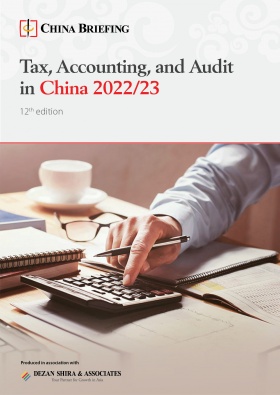US Lifts COVID-19 Restrictions on Travelers from China
The CDC in the US lifts COVID-19 restrictions on travelers from China as case numbers decline, reversing its policy requiring all travelers from China to provide negative COVID-19 test results pre-flight. This policy change has been observed in other countries, including Japan and India.
On March 10, 2023, the US Center for Disease Control and Prevention (CDC) announced the removal of the special COVID-19 testing requirements for inbound travelers coming from China and its administrative regions.
The CDC announcement implies that individuals traveling from China, Hong Kong, Macau, and certain designated airports outside of China are no longer required to undergo a pre-flight COVID-19 test or provide evidence of recent recovery from COVID-19 in order to board a flight to the US. The CDC, however, stressed that although testing has been suspended, it will continue monitoring the COVID management situation in China as well as elsewhere around the world.
The initial policy measure was implemented in January 2023. It was triggered by a sharp spike in cases in China, leading to worries about a fresh wave of cases worldwide. However, cases in China have since dropped to manageable levels which has in turn led to the loosening of travel restrictions by multiple countries.
Indeed, Washington is not alone in this policy shift and several countries around the world have already implemented similar measures. As of March 1, 2023, Japan rolled back mandatory testing for all arrivals from Mainland China, although hand-picked samples are still routinely collected. In February 2023, India also rolled back its mandatory policy for passengers from China, Singapore, Hong Kong, South Korea, Japan, and Thailand to hold a negative test before departure.
The enforcement of mandatory testing requirements by various countries around the world elicited strong criticism and backlash from Beijing, who claimed that the measures lacked any scientific basis and were excessive. Therefore, the reversal will no doubt be welcomed by authorities in Beijing and travelers alike, easing travel in a bid to get back to pre-pandemic travel.
Potential impact on US-China relations
The policy change over testing requirements arrives in a climate of ongoing tensions between Chinese and US officials over various issues such as the pandemic response and the so-called “balloon incident”. Earlier in January, Chinese officials had also warned of retaliatory measures against countries, including the US, that impose COVID-19 testing requirements on travelers.
In turn, the removal of mandatory COVID-19 testing requirements for inbound travelers from China and its administrative regions is likely to have several positive implications. Firstly, it could lead to an increase in travel and trade between the US and China, with consequent positive economic implications. Additionally, the policy change could help to slightly cool tensions between the two countries, at least with regard to disputes over travel and COVID-19 prevention. In addition, by easing travel restrictions, the two countries may be able to have more interpersonal exchange, which could facilitate a more cooperative relationship and work towards resolving differences.
To stay up to date with current US-China relations, see our dedicated article on the topic.
About Us
China Briefing is written and produced by Dezan Shira & Associates. The practice assists foreign investors into China and has done so since 1992 through offices in Beijing, Tianjin, Dalian, Qingdao, Shanghai, Hangzhou, Ningbo, Suzhou, Guangzhou, Dongguan, Zhongshan, Shenzhen, and Hong Kong. Please contact the firm for assistance in China at china@dezshira.com.
Dezan Shira & Associates has offices in Vietnam, Indonesia, Singapore, United States, Germany, Italy, India, and Russia, in addition to our trade research facilities along the Belt & Road Initiative. We also have partner firms assisting foreign investors in The Philippines, Malaysia, Thailand, Bangladesh.
- Previous Article Preparing for China’s Annual CIT Filing: How to Deal with Book-Tax Differences
- Next Article Informe de trabajo gubernamental de 2023 de China: destacados de las dos sesiones







